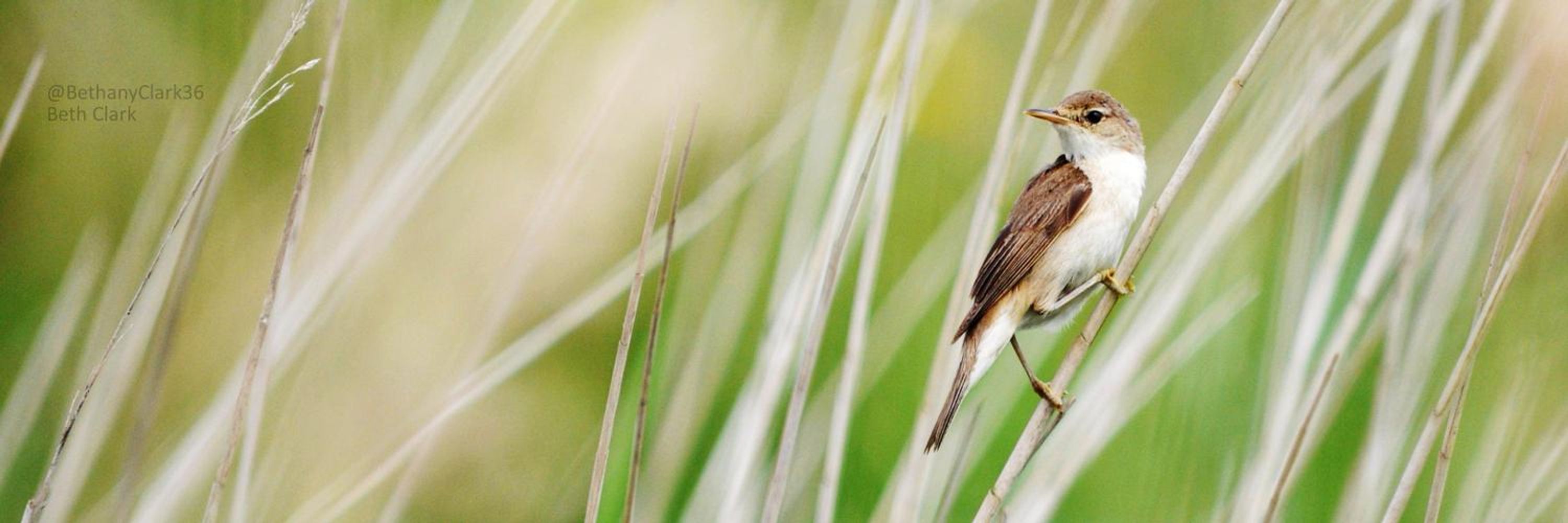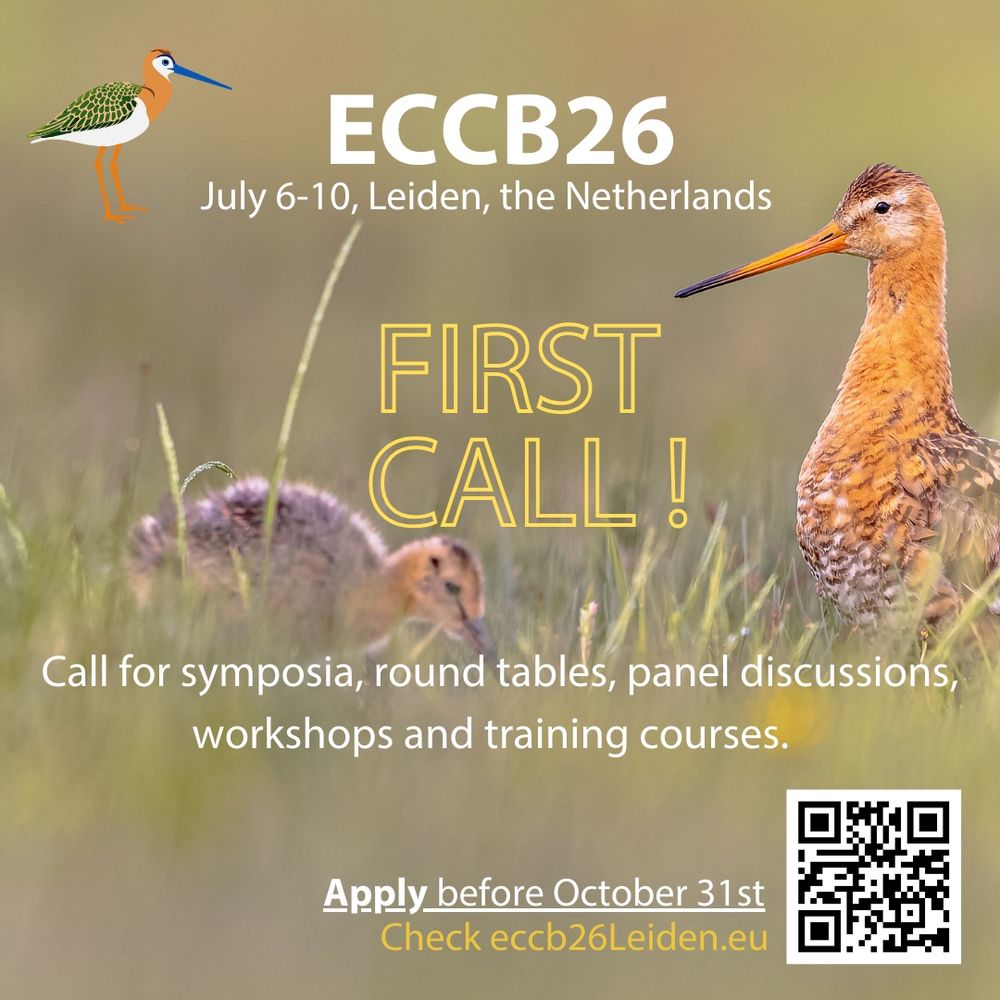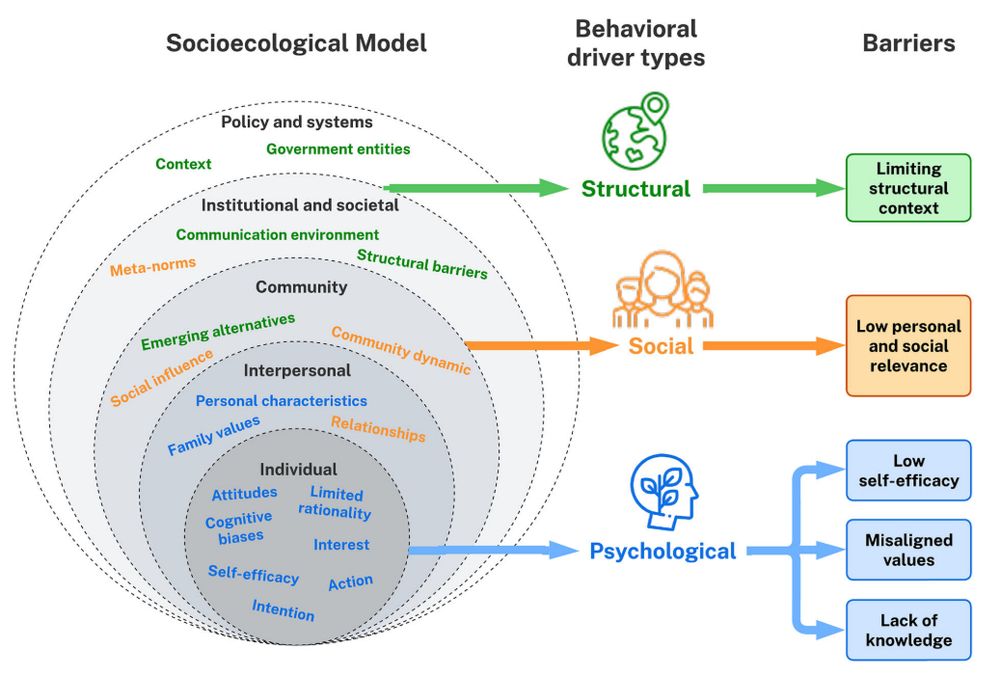
Part of @society4conbio.bsky.social
#biodiversity #climatechange #nature
Conferences, webinars, policy and scientific journals!
Website: https://conbio.org/groups/sections/europe
You can find the link to the voting system in your email ✉️

You can find the link to the voting system in your email ✉️
Submit your proposal before October 31st, 2025.
The call for abstracts (parallel sessions) will open on December 1st, 2025 and close on January 31st, 2026. Join the conversation!
Visit: eccb26Leiden.eu

Submit your proposal before October 31st, 2025.
The call for abstracts (parallel sessions) will open on December 1st, 2025 and close on January 31st, 2026. Join the conversation!
Visit: eccb26Leiden.eu
A new analysis shows the Edge Influence index, often used to measure habitat fragmentation, mostly reflects habitat amount and not fragmentation itself. Simpler metrics can better guide conservation decisions.
Martin et al. in Cons. Let. doi.org/10.1111/conl...

A new analysis shows the Edge Influence index, often used to measure habitat fragmentation, mostly reflects habitat amount and not fragmentation itself. Simpler metrics can better guide conservation decisions.
Martin et al. in Cons. Let. doi.org/10.1111/conl...
Thought-provoking sessions coming up this October & November:
20/22/29 Oct: DEIJ in conservation
23 Oct: Rethinking conservation narratives
7 Nov: Rights for organisms!
12 Nov: Habitat restoration & ecopsychology
Register here: bit.ly/4nYatdM

Thought-provoking sessions coming up this October & November:
20/22/29 Oct: DEIJ in conservation
23 Oct: Rethinking conservation narratives
7 Nov: Rights for organisms!
12 Nov: Habitat restoration & ecopsychology
Register here: bit.ly/4nYatdM
Most bird species overlap with Key Biodiversity Areas (KBAs), yet gaps remain, especially for northern and temperate species. Expanding KBA coverage could better safeguard global avian diversity.
Lansley et al. in Conservation Biology doi.org/10.1111/cobi...

Most bird species overlap with Key Biodiversity Areas (KBAs), yet gaps remain, especially for northern and temperate species. Expanding KBA coverage could better safeguard global avian diversity.
Lansley et al. in Conservation Biology doi.org/10.1111/cobi...
Conservation value in Swedish forests often relies on aboveground habitat features, missing soil fungal diversity. Including soil-related features helps to protect hidden biodiversity.
Kyaschenko et al. in Conservation Biology doi.org/10.1111/cobi...

Conservation value in Swedish forests often relies on aboveground habitat features, missing soil fungal diversity. Including soil-related features helps to protect hidden biodiversity.
Kyaschenko et al. in Conservation Biology doi.org/10.1111/cobi...
Picture by Laura Bosco

Picture by Laura Bosco
20 years since launch, Important Plant Areas (IPAs) remain a key tool for plant conservation but face gaps, e.g. in funding. Strengthening IPA programs could boost global biodiversity protection.
Kor et al. in Conservation Biology doi.org/10.1111/cobi...

20 years since launch, Important Plant Areas (IPAs) remain a key tool for plant conservation but face gaps, e.g. in funding. Strengthening IPA programs could boost global biodiversity protection.
Kor et al. in Conservation Biology doi.org/10.1111/cobi...
🦋 study: Survival of nearly all Southern White Admiral life stages are driven by solar radiation. Sunlit forest patches boost reproduction, which is vital for conserving open-forest butterflies.
Hinneberg et al. in Cons. Sci. Prac. doi.org/10.1111/csp2...

🦋 study: Survival of nearly all Southern White Admiral life stages are driven by solar radiation. Sunlit forest patches boost reproduction, which is vital for conserving open-forest butterflies.
Hinneberg et al. in Cons. Sci. Prac. doi.org/10.1111/csp2...
Survey shows that Mediterranean stakeholders agree on priorities: regulating ecosystem services, taxonomic diversity & nature’s value. Building on this consensus can boost conservation action.
Hernández-Agüero et al. in Cons. Letters doi.org/10.1111/conl...

Survey shows that Mediterranean stakeholders agree on priorities: regulating ecosystem services, taxonomic diversity & nature’s value. Building on this consensus can boost conservation action.
Hernández-Agüero et al. in Cons. Letters doi.org/10.1111/conl...
Open to SCB members in Europe, apply by October 15th! For more information, see conbio.informz.net/InformzDataS...

Open to SCB members in Europe, apply by October 15th! For more information, see conbio.informz.net/InformzDataS...
European Congress for Conservation Biology (Leiden, the Netherlands in July 6th to 10th 2026) is open for proposals: symposia, panels, workshops & training on effective biodiversity conservation.
Deadline Oct 31st 2025 👉 eccb26Leiden.eu #ECCB2026

European Congress for Conservation Biology (Leiden, the Netherlands in July 6th to 10th 2026) is open for proposals: symposia, panels, workshops & training on effective biodiversity conservation.
Deadline Oct 31st 2025 👉 eccb26Leiden.eu #ECCB2026
Public engagement is vital for biodiversity but barriers e.g. lack of knowledge, misaligned values & low personal relevance persist. Tailored approaches are needed in different contexts.
Gregg et al. in Conservation Biology doi.org/10.1111/cobi...

Public engagement is vital for biodiversity but barriers e.g. lack of knowledge, misaligned values & low personal relevance persist. Tailored approaches are needed in different contexts.
Gregg et al. in Conservation Biology doi.org/10.1111/cobi...
Artificially mimicking ecosystem engineers, e.g. beaver dams, can restore processes and aid species recovery, but unintended impacts are possible ➡️ more research on effectiveness, scalability & trade-offs
Goss et al. in Cons. Biol. doi.org/10.1111/cobi...

Artificially mimicking ecosystem engineers, e.g. beaver dams, can restore processes and aid species recovery, but unintended impacts are possible ➡️ more research on effectiveness, scalability & trade-offs
Goss et al. in Cons. Biol. doi.org/10.1111/cobi...
Climate change will reshape European bat communities: losses in the south, gains in the north, changes in functional diversity. Conservation should target key traits, habitats & connectivity.
Fialas et al. in Conservation Biology doi.org/10.1111/cobi...

Climate change will reshape European bat communities: losses in the south, gains in the north, changes in functional diversity. Conservation should target key traits, habitats & connectivity.
Fialas et al. in Conservation Biology doi.org/10.1111/cobi...
25-year study of amphibians in Italy shows abundance data detects declines sooner but with more uncertainty compared to occupancy data. Data types together give stronger extinction risk assessments.
Falaschi et al. in Cons. Biol. doi.org/10.1111/cobi...

25-year study of amphibians in Italy shows abundance data detects declines sooner but with more uncertainty compared to occupancy data. Data types together give stronger extinction risk assessments.
Falaschi et al. in Cons. Biol. doi.org/10.1111/cobi...
Satellite & field data reveal 25 years of change in Italian coastal dunes: vegetation encroachment, shifts in habitat types and forest homogenization show succession and management needs.
Cini et al. in Conservation Science and Practice doi.org/10.1111/csp2...

Satellite & field data reveal 25 years of change in Italian coastal dunes: vegetation encroachment, shifts in habitat types and forest homogenization show succession and management needs.
Cini et al. in Conservation Science and Practice doi.org/10.1111/csp2...
Mediterranean Marine Protected Areas cover only <30% of megafaunal predators. Species distributions vary greatly, leading to drastically different spatial conservation priority areas.
Boyse et al. in Conservation Science and Practice doi.org/10.1111/csp2...

Mediterranean Marine Protected Areas cover only <30% of megafaunal predators. Species distributions vary greatly, leading to drastically different spatial conservation priority areas.
Boyse et al. in Conservation Science and Practice doi.org/10.1111/csp2...
Coexistence with large carnivores is a conservation challenge. Revisiting Volterra principle (more mortality on both prey and predators leads to more prey & fewer predators) can inform modern conservation strategies.
Boyce et al. in Cons. Biol. doi.org/10.1111/cobi...

Coexistence with large carnivores is a conservation challenge. Revisiting Volterra principle (more mortality on both prey and predators leads to more prey & fewer predators) can inform modern conservation strategies.
Boyce et al. in Cons. Biol. doi.org/10.1111/cobi...
Unsown strips in winter fields boosted skylark breeding success, prey density & habitat use without reducing yields. ➡️ adopt strips at large scale to aid skylark conservation in farmland.
Blösch et al. in Cons. Science and Practice doi.org/10.1111/csp2...

Unsown strips in winter fields boosted skylark breeding success, prey density & habitat use without reducing yields. ➡️ adopt strips at large scale to aid skylark conservation in farmland.
Blösch et al. in Cons. Science and Practice doi.org/10.1111/csp2...
North Sea offshore wind farms can increase artificial light pollution, posing risks to migratory birds and bats. Anticipatory marine governance is needed to reduce impacts.
Walsh et al. in Conservation Science and Practice doi.org/10.1111/csp2...

North Sea offshore wind farms can increase artificial light pollution, posing risks to migratory birds and bats. Anticipatory marine governance is needed to reduce impacts.
Walsh et al. in Conservation Science and Practice doi.org/10.1111/csp2...
🌳Biodiversity-sensitive urban design 🌳
Urban nature must go beyond green space. Rethinking nature as a design opportunity, not a constraint, can help cities thrive for both people and wildlife.
Visintin et al. in Conservation Biology doi.org/10.1111/cobi...

🌳Biodiversity-sensitive urban design 🌳
Urban nature must go beyond green space. Rethinking nature as a design opportunity, not a constraint, can help cities thrive for both people and wildlife.
Visintin et al. in Conservation Biology doi.org/10.1111/cobi...
Protected areas can safeguard genetic diversity but benefits vary by species, body size & connectivity. Limited data availability hinders systematic incorporation of genetic diversity into PA design.
Schmidt et al. in Conservation Letters doi.org/10.1111/conl...

Protected areas can safeguard genetic diversity but benefits vary by species, body size & connectivity. Limited data availability hinders systematic incorporation of genetic diversity into PA design.
Schmidt et al. in Conservation Letters doi.org/10.1111/conl...
Reptile diversity in western Mediterranean peaks 15–40 years post-fire, especially in afforested areas. Pyrodiverse landscapes boost richness, but more frequent fires may be harmful to reptile communities.
Santos et al. doi.org/10.1111/cobi...

Reptile diversity in western Mediterranean peaks 15–40 years post-fire, especially in afforested areas. Pyrodiverse landscapes boost richness, but more frequent fires may be harmful to reptile communities.
Santos et al. doi.org/10.1111/cobi...
Gender gaps in science are narrowing but slowly. Men still outnumber women 2.3x among top-cited authors (down from 6.4x in the past). Just 18% of fields have gender parity. Progress varies widely by discipline and country.
doi.org/10.1371/jour...

Gender gaps in science are narrowing but slowly. Men still outnumber women 2.3x among top-cited authors (down from 6.4x in the past). Just 18% of fields have gender parity. Progress varies widely by discipline and country.
doi.org/10.1371/jour...

